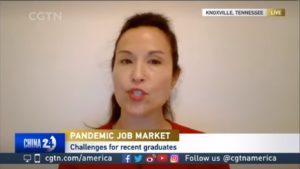
Shanghai-based b
usiness executive Shaun Rein gets many requests from people in the US, who are desperately looking for jobs in China. But a booming economy does not mean that jobs are easily available for foreigners coming to China,
he tells in CNBC.
There are, however, serious downsides to working in China to think about before heading over. Unlike several years ago, being able to speak English or having overseas work experience does not automatically give you an advantage.
Nearly one million Chinese have studied abroad in the last three decades. Almost 30 percent have returned to China in recent years because of job opportunities and daunting U.S. work visa policies. Nearly 80 percent of my firm’s recent hires in the past two years studied in America and the United Kingdom.
Companies often prefer to hire these returnees because they can move with ease between Chinese and Western business environments. Given this pool of qualified Chinese, foreign job seekers have to work harder to prove their value. The Chinese government is also making it difficult for foreigners to get visas unless they have demonstrated expertise in sectors like finance and IT.
Foreigners lucky enough to find jobs should also expect lower salaries than what they get at home. Even before the financial crisis, companies began phasing out expatriate packages with cars, chauffeurs and housing allowances - except for the most senior executives. Expats should expect to be paid a fraction of their salary back home until they can prove that they add value to the China operations.
Shaun Rein is a speaker at the China Speakers Bureau. Do you need him at your meeting or conference? Do get in touch.





